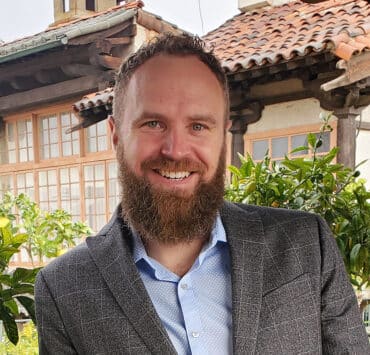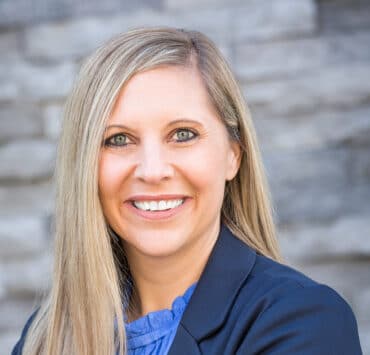|
Getting your Trinity Audio player ready...
|
Ellen Ginsberg isn’t just a senior vice president, general counsel, and corporate secretary at the Nuclear Energy Institute (NEI), she is a thirty-plus-year veteran whose original plan was to stay only a few years and return to the law firm from which she came.
In the decades Ginsberg has been with NEI, the organization has had five CEOs—she is the only executive remaining from the previous CEO’s tenure—but the evolution at NEI hasn’t rattled her. Instead, she’s embraced the change.
Ginsberg remains enthusiastic about her job because she believes in what she does: advancing nuclear energy as a key component to addressing climate change and using it to raise the standard of living for many communities. She sees a bright future and freely points to nuclear energy’s attributes of carbon-free generation with 24/7 reliability.
Each of the successive CEOs brought a fresh vision for the organization and offered her the opportunity to continue to grow into new leadership areas. “Our current CEO, Maria Korsnick, is energetic, driven, and has great vision,” Ginsberg explains. “She’s given me the opportunity to jump into subjects and projects in which I hadn’t previously had much involvement.”
The new opportunities have been both energizing and challenging.
“We were going up against a multibillion-dollar organization with teams of lawyers at its fingertips. I’m pretty sure they didn’t think we were up to the challenge.”
Ellen Ginsberg
Up to the Challenge
As challenges go, 2018 was a banner year for NEI and Ginsberg. Although NEI won a landmark victory in federal court, it was not a battle the organization wanted to have to fight: the organization was sued by a former member seeking continued access to a NEI members-only service.
“This was a little bit of a David versus Goliath situation,” Ginsberg explains. “NEI employs just one hundred people. We’re not just member-driven, we’re member-funded. We were going up against a multibillion-dollar company with teams of lawyers at its fingertips. I am pretty sure that they didn’t think we were up to the challenge.”
The litigation lasted ten months but involved an extremely compressed discovery and briefing schedule. While on a much-needed few days off, Ginsberg checked in with her CEO. “I told her that, at each of the many churches we toured, I prayed to the God of Summary Judgment,” she jokes.
Be it prayers, excellent lawyering, or a combination thereof, NEI emerged victorious on all counts with no appeal. “I felt that the work we had done put us in a favorable position,” Ginsberg says. “Obviously, you never know what the court is going to decide, but I strongly discouraged softening our position.”
While it was the right decision, maintaining that stance couldn’t have been easy as the suit presented what felt like an existential threat. The damages sought were in the tens of millions of dollars, hardly pocket change for any trade association.
Ginsberg exudes a sense of pride in the achievement but is quick to note that NEI would rather focus on meeting its members’ needs and acting as a unifying force for the industry.
Expanded Approach
Ginsberg, who also serves as corporate secretary, says the current CEO encouraged her to take on improving the nature, quality, and substance of NEI’s governance meetings and other board-level interactions. The changes have led to increased member engagement and support for the organization.
“I really enjoy this work because it not only leverages my legal skills to ensure our compliance,” she explains, “but also requires creative thinking to use the governance platform to gain critical insights from members to advance our efforts on their behalf.”
Recently, Ginsberg widened her responsibilities into another increasingly important area. As NEI’s emphasis on an equitable energy transition expanded, she volunteered to lead the organization’s efforts to ensure that the nuclear energy industry addresses the environmental justice issue head-on.
Ginsberg is enthusiastic about this work because it has allowed her to present the industry’s ongoing efforts to the US Nuclear Regulatory Commission and in other forums, as well as learn from environmental justice thought leaders.
“It’s so important to develop relationships with lawyers who span the spectrum, as they are often the key to understanding an industry issue or agency position.”
Ellen Ginsberg
In 2021, she led the effort to establish the industry’s environmental justice principles. “That was no mean feat,” she says. “With the multitude of members and perspectives, it was critical to get every word right and gain consensus on each principle.”
Looking back on her career at NEI, Ginsberg largely credits her success to maintaining strong relationships with colleagues in the nuclear bar, the government, and other associations. She laments that many of the lawyers she has worked with and relied on have retired, but she recognizes that, as she says, “It’s incumbent on me to figure out how to embrace those who follow them.”
“There are many people who begin in government, develop great skills and knowledge, and wind up in a law firm or move up in the ranks of the agency for which they work,” she adds. “It’s so important to develop relationships with lawyers who span the spectrum, as they often are the key to understanding an industry issue or agency position.”


